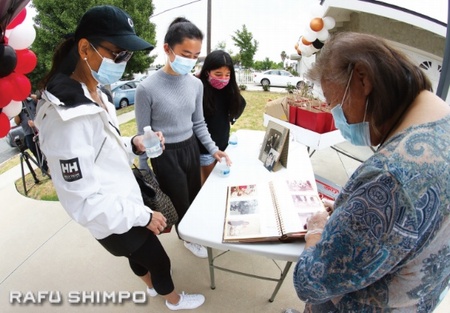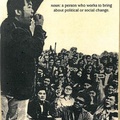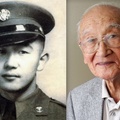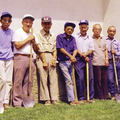TORRANCE — When Toru Bill Nishimura was born 100 years ago in Compton, the area was still farmland. Gardena Valley was a real valley where herons gathered in the water pools and jack rabbits and coyotes roamed the area.
Nishimura is a graduate of Leuzinger High School and is currently the oldest living alum.
In 1941 when the United States entered World War II, Nishimura and his family were farming on the Kurata Ranch, which is now considered the City of Lawndale. Shortly after war broke out, the FBI came to Nishimura’s home, ransacked the place and took his father away.
It was weeks before the family found out the father was incarcerated at the Tuna Canyon Detention Station, a former Civilian Conservation Corps camp in Tujunga.
When rumors started circulating that the government planned to force Japanese Americans into U.S.-style concentration camps, Nishimura and his mother decided to move out of the Military Exclusion Zone and went to live with a relative in Central California. Nishimura’s sister remained in Southern California with her husband.
Within months, however, Central California also became a Military Exclusion Zone for Japanese Americans and Nishimura and his mother were forced to enter the Colorado River (Poston) War Relocation Authority camp in Arizona. Nishimura’s individual number was 41665A.
By this time, Nishimura was angry about having his father taken away without explanation, having to move out of their home in Southern California and watching thousands of dollars in crop sales get taken away from them since they had to go into camp.
The government issued the controversial loyalty questionnaire in early 1943. Asked if he would swear unqualified allegiance to the United States and forswear any form of allegiance to the emperor of Japan, Nishimura answered “no.” Asked if he was willing to serve on combat duty wherever ordered, he answered, “yes, on condition we are allowed to go back to California to our normal life again, otherwise not.”
A War Relocation Authority official interrogated Nishimura and pressured him to change his answers, but he remained steadfast. For this, Nishimura and his father were transferred to the Tule Lake Segregation Center, just south of the California-Oregon border.
Nishimura eventually joined the Sokuji Kikoku Hokoku Hoshidan and renounced his U.S. citizenship out of anger at the government’s treatment of himself, his family and the entire Nikkei community.
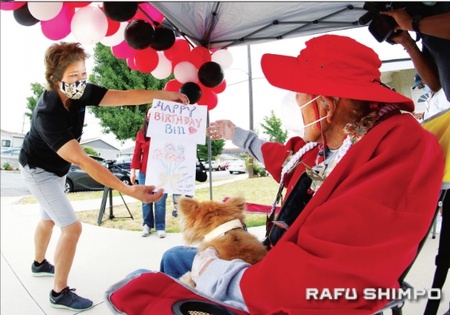
From Tule Lake, Nishimura and his father were transferred to the Santa Fe Department of Justice camp in New Mexico. They were scheduled to be deported to Japan but his father fell ill, and they were transferred to the Crystal City DOJ camp in Texas. Nishimura would not be released from camp until June 1947, two years after the war had ended.
Even after his release, Nishimura was still under FBI surveillance for a short while.
He had his U.S. citizenship restored through the efforts of civil rights attorney Wayne Collins, Tetsujiro “Tex” Nakamura and the Tule Lake Defense Fund team.
Nishimura did not return to Tule Lake until 2000 and the only reason he returned was to fulfill his wish of climbing Castle Rock as a free person. To his surprise, he discovered that the younger generation took a keen interest in his wartime experiences. Since then, he has shared his story at the pilgrimages, the Los Angeles Unified School District’s teacher training workshops, Leuzinger High gatherings, and other public functions.
To the younger generation, Nishimura said, “Listen to your elders. Don’t think you know everything. And keep moving forward.”
He also shared words of wisdom from his father, Tomio: “My dad always told me, ‘Toru, zettai ni uso o yu na yo’ (Toru, don’t ever tell a lie). That always stayed with me.”
* This article was originally published in The Rafu Shimpo on June 25, 2020.
© 2020 Martha Nakagawa


